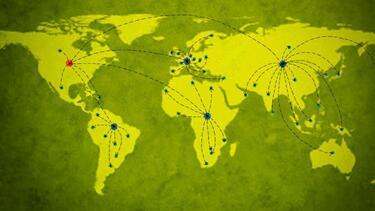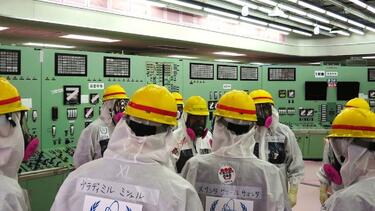Global Business
Better Sanctions Can Weaken Russia
Yale SOM’s Jeffrey Sonnenfeld, who has helped lead the movement to isolate Russia, and co-author Steven Tian write that the current sanctions regime is spottily enforced and ignores key commodities exports. They suggest three steps policymakers should take to give economic sanctions real bite.

How do you set strategy for a global enterprise?
Long-term thinking often gets lost in solving short-term problems, but the most successful companies make corporate strategy a top priority.

How do you lead a company through a nuclear accident?
The 2011 tsunami and the meltdown of the Fukushima Daiichi nuclear power plant in Japan shattered the nuclear industry’s "safety myth" and prompted the shutdown of all nuclear power plants in the country. Naomi Hirose '83 talks about leading the plant’s operating company through an unprecedented cleanup and rebuilding effort.

How does a global corporation keep innovating?
Honeywell International has 132,000 employees around the world and dozens of businesses in the aerospace, energy, consumer products, construction, automotive, healthcare, and other industries. How does an organization on that scale stay nimble enough to recognize opportunities and take advantage of them? CEO Dave Cote discusses the company's strategy and his own role.
Does Indian Culture Produce Great Leaders?
Senior Associate Dean Anjani Jain is sometimes asked whether India’s culture plays a role in the preponderance of influential Indian management thinkers. He offers his perspective in a commentary in the Economic Times.
Immigration and Innovation
As legislators negotiate comprehensive immigration reform, Professor Mushfiq Mobarak explains, in a commentary in the New York Times, the importance of skilled foreign workers in sustaining the United States’ comparative advantage in science and innovation.
How does Colombia see globalization?
The former president of Colombia argues that dealing with globalization is an imperative for all countries. He describes how he tried to build relationships with other nations when he was head of state, with an eye toward working together to solve major problems—such as narco-trafficking, terrorism, and resource constraints—that cross borders.
Decline in U.S. Manufacturing Jobs Tied to Shift in China Trade Policy
A new working paper co-authored by Professor Peter Schott links the sharp decrease in U.S. manufacturing employment after 2001 to a substantial shift in U.S. trade policy towards China in late 2000.
How do businesses reach across the globe?
Any large organization has multiple stakeholders with different needs. And a truly global business has to deal with tremendous variation in cultural and regulatory contexts. For example, in the U.S., per capita credit card penetration is 2.5—meaning there are more than 2 credit cards for each person in the country. In Saudi Arabia, where Islam forbids the use of credit, the penetration rate is .04. How can a company cope with exponentially increasing complexity as it moves to more and more markets? And are there some businesses that don't translate easily—or at all—across borders?
Can renewable energy compete?
The cost to produce energy from renewable sources, such as wind and solar, has fallen dramatically in recent decades, but so has the cost of natural gas. Daniel Gross, a renewable energy investor, discusses what it will take to make wind and solar cost-competitive.
Can foreign retail benefit India?
Professor K. Sudhir discusses India’s move to expand the presence of foreign retailers to modernize the country’s retail sector and boost economic growth.